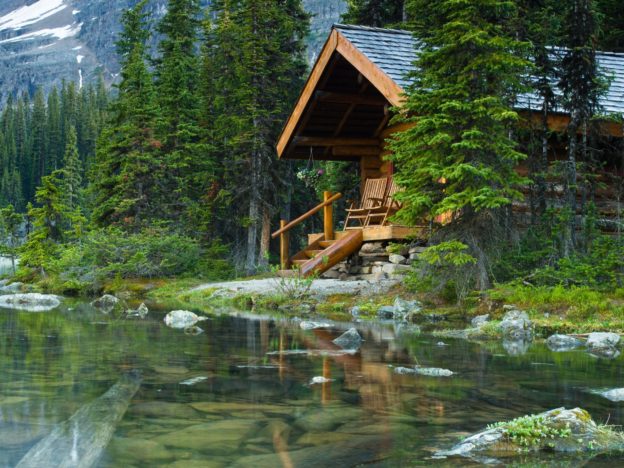Summary List Placement
If you’re considering a second home purchase, a financial planner says there are five things to consider before jumping into it.
Setting a reasonable budget should come before anything else. Then, start considering how it will affect other parts of your financial plan.
And consider your cash savings and cash flow — will there be enough to easily cover the new expenses of owning a second home?
Don’t rush into your second home purchase — it’s more likely that you’ll make impulse decisions and spend more than you should.
Take control of your money with Facet Wealth — a virtual full-service financial planning service with dedicated certified financial planners »
Buying a second home isn’t a quick process — it takes time, and a lot of planning.
Financial planner and co-founder of Facet Wealth Brent Weiss has seen several clients buy second homes, and says there’s one important thing to have before you start.
“The No. 1 thing that people need to do is have a plan around it,” he says. “If you do it right, it becomes a really amazing part of your financial plan, and it’s a successful moment for you.”
In order to build a solid plan, there’s a lot that needs to happen before you even start thinking about the home itself.
Find out what a financial planner can do for you with Personal Finance Insider’s free e-book »
Set a realistic budget before you start searching
Weiss says his clients often skip one of the most important steps in the process of buying a home: setting a realistic budget for how much second home they can actually afford.
“The biggest mistake that I see among second home buyers is that people start looking before they set realistic goals or have a plan for it,” he says.
“People start Zillowing, and they go online and look for houses. And guess what happens? They call me and go, ‘I’ve found my dream home,’ and it is inevitably more than we probably should fit into the budget,” Weiss says.
Instead, he recommends anyone thinking about a second home purchase start by setting up the financial side first.
Make sure you have enough cash on hand, both coming in and in savings
Like buying a first home, a second home is an equally major purchase. For most people, a second home purchase will require another mortgage, and will add to the monthly and annual home expenses you already have.
“I tell all of my clients, at the end of the day, at cash is king. A lot of people don’t necessarily account for all of the expenses that will come with [a second home] and how it’s actually going to impact their cash flow,” he says.
Expenses for second homes add up quickly, just like they would with a first home, from property taxes to home repairs and maintenance. Oftentimes, people underestimate just how much these expenses will add up, and don’t save appropriately.
Understand the larger picture of how it will impact your finances
Weiss suggests that any of his clients considering a second home purchase take a step back to look their financial plan and their priorities.
“Where does the second home fall when it’s compared to everything else in your financial life?” he says. “Do you have a healthy emergency fund? Have you paid down other debt? Are you saving properly and on track for retirement, or paying for college for your kids?”
Buying a second home will make for a big change in everything from your cash flow to your taxes. You’ll want to make sure that you’re prepared to take on whatever financial challenges owning a second home might bring.
Don’t rush into the purchase
You wouldn’t rush into a first home purchase — it’s something that takes time and planning. Weiss says that some people tend to rush into a second home purchase, but that’s not a smart move.
“Sleep on it. Think about it for awhile,” he says. Homebuying is often an emotional thing, and the same is true for a second home. That’s heightened when you’re in a rush to buy.
“People make these emotional decisions and say, ‘We can squeeze in an extra $1,000 a month,’ or ‘We can go an extra $50,000 or $100,000 on the purchase price, we’ll be OK.’ But those are the little things that six or 12 months later, people think, ‘We probably should have stuck within our budget,'” he says.
Don’t be sure you’ll always want to rent out your vacation home
While some people have a plan to rent out their vacation home for part of the year for income, Weiss says that it doesn’t always turn out that way in his experience. Oftentimes, his clients change their minds about renting.
“A lot of people will buy a second home, and they’ll think about it as a rental. Then, it becomes a very personal thing for people, and most people stop renting it out,” he says. “They think, ‘I can rent out a couple of weeks of the year to help pay for the mortgage.’ And then they realize that’s really not fitting, because they want their family to go there, or they want a friend to go, or they want to be there more often. Or, they don’t want somebody else living at their house when they’re not there.”
Oftentimes, buyers budget in the extra cash that renting the home will bring, even though it’s not guaranteed. And deciding not to rent it out can create another snag in the financial plan around the second home. “That impacts the cash flow, and the math we do around affordability and the ability to fund other goals,” Weiss says.
Facet Wealth
Related Content Module: More Personal Finance CoverageJoin the conversation about this story »
Read More

Comments are closed